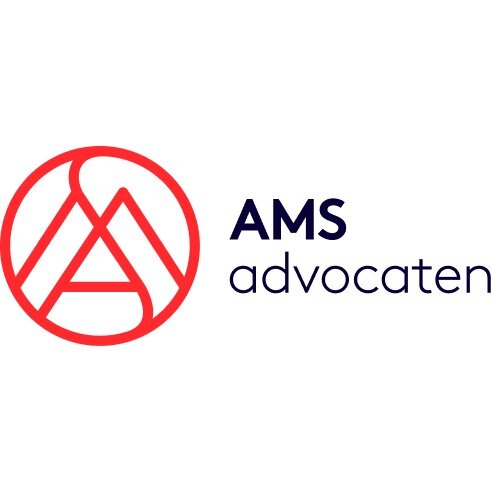
AMS Advocaten N.V.
Amsterdam, Netherlands
The lawyers at AMS are experts in advising and litigating for (international) companies and individuals.
Involvement in our clients' affairs, legal expertise, decisiveness, short lines of communication and competitive rates, that is what you can expect from us.
The lawyers at AMS are experts in advising and litigating for (international) companies and individuals.
Involvement in our clients' affairs, legal expertise, decisiveness, short lines of communication and competitive rates, that is what you can expect from us.
Free • Anonymous • Expert Lawyers
Need Personal Legal Help?
Connect with experienced lawyers in your area for personalized advice on your specific situation.
No obligation to hire. 100% free service.
Practice areas
ADVICE AND LITIGATION
The lawyers of AMS Advocaten have years of experience in advising and litigating in the field of corporate law. Corporate law covers a variety of matters: from the establishment of a BV to an inquiry procedure before the Enterprise Chamber. Whether it concerns a matter of advice or assistance in a procedure, our team is at your service.
CORPORATE LAW ATTORNEY
There is a lot to consider when setting up a company or another form of business such as a foundation or cooperative. Contracts such as a shareholders' agreement or a formation agreement will have to be drawn up. These documents form the basis of the future company: in the event of disputes, the agreements laid down in them are often a decisive factor. The corporate law lawyers of AMS are aware of all legal requirements and have extensive experience in advising on the establishment of a company.
THE ENTERPRISE ROOM
Even after the foundation, the AMS Advocaten team can assist you in all possible legal situations. Consider, for example, the preparation of a shareholders' meeting, the restructuring of a company or advice in the event of a dispute between shareholders or partners. If there is a deadlock situation, various legal proceedings are conceivable. For example, summary proceedings can offer a solution.
Our lawyers also regularly litigate before the Enterprise Chamber of the Amsterdam Court of Appeal in the context of inquiry proceedings . In this procedure, at the request of the shareholders or the company itself, an investigation is conducted into the policy and course of affairs of the company.
BUYING OUT A SHAREHOLDER OR PARTNER
Another way to resolve a dispute between shareholders is to buy out one or more shareholders or partners. Whether it concerns a shareholder who wants to be bought out himself, an exit or squeeze-out procedure for the benefit of the other shareholders or two partners who want to end their cooperation, we offer advice and guidance in every stage of this process.
DISMISSED DRIVER
In addition to corporate law, employment law aspects are also involved in the dismissal of a director of a company. In addition to his corporate position as a director under the articles of association, the director usually also has an employment law relationship with the company. This sometimes makes it complicated to fire a director. After all, two ties have to be broken. We are also familiar with employment law and can therefore assess a dismissal situation from both perspectives.
DIRECTORS' LIABILITY
Our lawyers are specialized in the field of directors' and officers' liability . This can vary from internal liability, liability in the event of bankruptcy or personal culpability and wrongful act of the director towards a third party.
Case law on this subject is in full development and we continuously update our knowledge through courses and jurisprudence discussions. This enables us to continue to provide clients with the most up-to-date information and advice.
MERGER AND ACQUISITION
Buying or selling a company is a special process. The method of transfer depends on the type of company: with a BV it is usually a share transaction, while with a sole proprietorship or VOF an assets and liabilities transaction is the obvious choice.
But with every transfer, the (legal) preliminary investigation is essential, especially for the buyer. He will, of course, want to know the company's financial position, whether any claims from the past are still to be expected, what the outlook is, and what the legal status of important contracts is. It is therefore advisable to involve the advice of a lawyer in the negotiations regarding a merger or acquisition.
CORPORATE LAW LAWYERS IN AMSTERDAM
The team of AMS Advocaten in Amsterdam has years of experience in advising and litigating for (international) companies and individuals. Our lawyers are strongly involved in their clients' affairs, work with short lines of communication and offer competitive rates.
CIVIL PROCEDURAL LAW
Civil procedural law includes all rules regarding legal proceedings: the method of submitting a dispute, the method of litigation, procedural terms, the formal requirements imposed on procedural documents, et cetera. The most important laws in procedural law are the Code of Civil Procedure and the Law on Judicial Organization.
Furthermore, the (role) regulations drawn up by the courts and tribunals themselves are very relevant: these regulations regulate the actual course of events regarding procedures. Think of requirements regarding the submission of documents, rules on postponement of hearings and other “house rules”.
DISTRICT JUDGE OR COURT
In the past, the subdistrict court judge was still an independent court, but nowadays the subdistrict court judge forms part of the court. It depends on the nature and financial importance of the case which court has jurisdiction to hear a dispute. The subdistrict court hears disputes concerning monetary claims up to € 25,000 and all labor law disputes, rental disputes and consumer purchase disputes.
Other disputes must be submitted to the court. Representation by a lawyer is not mandatory in the subdistrict court, but it is in court.
SUMMONS PROCEDURE
In civil law, cases can be initiated by summons or petition. However, most civil cases are initiated with a subpoena. This procedure is therefore called the summons procedure.
In a summons, the plaintiff states what he is claiming, from whom and why (the substantiation). A summons is usually drawn up by a lawyer or lawyer. A bailiff then serves the summons on the defendant. The summons states when the defendant must appear, at which court and at which location.
BOTTOM PROCEDURE
After the plaintiff has summoned a defendant to appear in court, the case is “arranged” at a docket hearing. At this hearing a further date will be set on which the defendant can submit a statement of defense (= defence). This written round is usually followed by a hearing in which the parties are present (with their lawyers). During this “appearance of the parties”, the judge can ask further questions and the parties can explain their positions orally.
Sometimes this procedure is also used to see if a settlement is possible. After this hearing, an (interim) judgment follows or the parties are given the opportunity to respond in writing to each other's positions in a second exchange of conclusions.
Proceedings on the merits end with a judgment .
SUMMARY JUDGMENT
Interim proceedings can offer a solution in a dispute where the outcome of (lengthy) proceedings on the merits cannot be awaited. Think of a ban on publishing a defamatory article in a magazine or a ban on evacuating a building. An urgent nature is therefore always required.
A judge in interlocutory proceedings is called a preliminary relief judge. In principle, a court in preliminary relief proceedings can only take “provisional measures” such as an injunction or an order to do or refrain from doing something. Under certain circumstances, an (advance on) a monetary claim can also be awarded. There is an appeal against a summary judgment.
APPEAL
Appeal, also known as appeal, is the procedure whereby a lawsuit is completely reassessed by a higher court. An appeal is possible against the majority of the judgments, provided that the financial interest exceeds € 1,750. The appeal period is three months. For judgments in summary proceedings, the term is reduced to one month.
Appeals in civil cases are heard by the Court of Appeal. A judgment on appeal is called a judgment. For appeals, the involvement of a lawyer is always required.
LAWYER LITIGATION
The litigation lawyers of AMS have extensive knowledge of civil procedural law due to years of experience with various procedures. Whether it concerns general court proceedings or more specialized legal cases such as collection proceedings or proceedings before the Enterprise Chamber of the Court of Appeal, you have always come to the right place at AMS Advocaten.
DRAFTING AN EMPLOYMENT CONTRACT
First of all, our lawyers have extensive experience in putting clear agreements on paper between employer and employee, implementing these agreements in an individual employment contract and/or collective personnel manual and professionalizing HR policy.
Our lawyers also draw up special employment contracts on request, such as the employment contract for a director-major shareholder or for an expat.
TERMINATION OF THE EMPLOYMENT CONTRACT
An employment usually ends by unilateral termination by the employee or employer, by mutual consent of the parties (termination agreement), by permission of the UWV, by dissolution of the subdistrict court judge or by operation of law without any action or statement from one of the parties being required. Whichever way is chosen, the termination of an employment contract can have far-reaching consequences for both employee and employer.
CANCELLATION PROHIBITION
An employer cannot simply terminate an employment contract. This is because there are prohibitions on termination (e.g. in the event of illness of the employee or if the employee is a member of the works council) and, in addition, a statutory ground for termination must be met. In principle, both parties must observe the legal or contractual notice period and other formalities when terminating the employment contract.
Our lawyers often first try to resolve cases outside the courtroom - for example through mediation - so that the mutual employment relationship is not irreparably damaged. Our lawyers also have a great deal of experience in negotiating and conducting legal proceedings if this is in the client's interest.
SEVERANCE PAY
When an employment contract is terminated, the employee is usually entitled to a severance payment. Since 1 July 2015, employees have in principle a legal right to a transition payment in the event of an involuntary termination or non-continuation of the fixed-term employment contract.
The amount of the transition payment follows from the law. The subdistrict court may award additional 'fair compensation' if the dissolution or non-continuation of the employment contract is the result of seriously culpable acts or omissions on the part of the employer.
Instead of annulling a termination of the employment contract or reinstating the employment contract, an employee can also request fair compensation on appeal and cassation. In those cases, the requirement that there must be 'seriously culpable acts or omissions' on the part of the employer does not apply.
When determining the amount of fair compensation, the court is free to take into account all circumstances of the case that are considered relevant.
COMPETITION CLAUSE AND NON-SOLICITATION CLAUSE
Other matters that may come up for discussion when the employment contract is terminated are the application of a non-competition clause or a non-solicitation clause. A non-competition clause prevents the employee from performing activities that are similar or similar to those of the former employer for a certain period after the employment has ended. A non-solicitation clause prohibits the employee from coming into contact with customers and relations of the employer.
In cases where the interests of the employee are disproportionately harmed by the maintenance of such a clause, the employee can request the subdistrict court to annul a non-competition or relationship clause in whole or in part or to moderate the fine imposed. The employment law lawyers of AMS Advocaten have extensive experience in conducting such proceedings.
FIRED IMMEDIATELY
Summary dismissal is a termination of the employment contract without observing the notice period. The employment contract will then end immediately. Usually it is the employer who gives the instant dismissal, but the employee can also resign with immediate effect.
For a summary dismissal, an urgent reason is required (e.g. theft or drunkenness of the employee at work). In addition, the employer must - after the employee has been able to give his views on the reason for the intended dismissal - dismiss the employee 'immediately'. The employee can contest the dismissal by appealing to the court within two months that the dismissal is voidable and also claiming that he will be put back to work and that his wages will continue to be paid.
The employee who no longer wants to work for the employer, but also does not want to accept the dismissal, can ask the subdistrict court to award fair compensation instead of annulling the dismissal. In both cases, the subdistrict court will have to assess whether there was indeed a valid instant dismissal.
REORGANIZATION
The employment law lawyers of AMS Advocaten advise large and smaller companies on reorganisations. Not only about the way in which the reorganization takes place, but also about the content of a possible social plan. On the other hand, the lawyers regularly assist employees who are made redundant as part of a reorganization.
EMPLOYEE PARTICIPATION
Employers are obliged to involve employees to some extent in important decisions within the organization that affect them. The task of the works council is therefore to represent (the interests of) the employees and to consult with the entrepreneur.
Our lawyers regularly advise works councils, employee participation councils and entrepreneurs on employee participation issues, such as decisions requiring advice and consent, the works council's right of inspection, collective dismissal, working conditions, the structure of employee participation and works council regulations.
EMPLOYMENT LAW LAWYERS IN AMSTERDAM
The employment law lawyers of AMS Advocaten have extensive knowledge and experience in all facets of employment law, both in the advisory preliminary phase in drawing up/assessing employment contracts and in negotiating and litigating in dismissal cases and in cases concerning the employer's duty of care. Because we assist both employers and employees, we are able to provide the best advice and the most efficient solutions from both perspectives.
ADVICE FROM A REAL ESTATE LAWYER
AMS Advocaten in Amsterdam specializes in real estate law. Real estate law does not only encompass the purchase and sale of a house or business premises. Other aspects relating to immovable property and registered property, such as the right of mortgage, usufruct or mandelheid , also fall under this. Our real estate lawyers therefore offer a service that goes further than just assessing a purchase contract.
BUY AND SELL REAL ESTATE
Most people have to deal with it at least once in their lives: buying or selling a home or other real estate object. The purchase or sale of real estate is regulated by a purchase agreement. Standard contracts are often used for homes. Various legal rules apply to protect the private buyer (e.g. the legal cooling-off period) from which it is hardly possible to deviate.
A contract also lays down the particulars that arise with the purchase, such as the existence of an easement or perpetual clause . It is therefore very important to obtain good advice in advance about the content and consequences of a purchase agreement. AMS Advocaten offers practical advice and adequate guidance in this regard.
HIDDEN DEFECTS AND LIABILITY
It happens that the purchase and sale process runs smoothly, but that problems only arise after delivery. Over time, the buyer may discover defects in the purchased goods that he was not aware of when entering into the purchase agreement. The question then arises who is liable for these hidden defects.
Furthermore, there may be errors made by the notary or the estate agent in the guidance process, with all the consequences that entails. For example, incorrect statements from a broker can lead to liability on the part of the broker .
A civil-law notary can also be liable if he violates his duty of care. This is the case if he does not act as may be expected of a reasonably competent civil-law notary. Through disciplinary law or civil proceedings, the real estate lawyers of AMS can hold the civil-law notary liable for the harmful consequences of his mistakes.
OWNERS ASSOCIATION
AMS Advocaten in Amsterdam also specializes in issues relating to the Owners' Association . Whether it concerns a dispute within the VvE or advice regarding the drafting of the deed of division and the internal regulations, AMS Advocaten is at home in all markets.
REAL ESTATE LAWYER IN AMSTERDAM
Our firm's lawyers not only have extensive experience in negotiating and drafting real estate agreements, but also litigates on behalf of their clients if necessary.
WHAT IS INTELLECTUAL PROPERTY LAW?
The right of ownership offers an owner of a house or an antique vase protection against unlawful actions by third parties: no one may use or take this house or vase without permission. But what if you designed a dress or wrote a song, are you also protected against third parties? How can you prevent third parties from copying this design or song without permission? Intellectual property law (IP law) has been created for this purpose.
VARIOUS IP RIGHTS
Intellectual property law is the collective term for rights to intellectual creations. Think of music, brands, design, inventions, texts and photos. IP law includes copyright , trademark law, trade name law and patent law. These rights are laid down in both Dutch and international law.
EXCLUSIVE AND ABSOLUTE RIGHT
In short, these rights mean that the creator has the exclusive right to use, reproduce and/or exploit the relevant intellectual creation (eg the text or design). Intellectual property rights can, in principle, be invoked by the maker or entitled party against anyone who copies or uses the creation protected by IP law without permission. However, it is required that the intellectual creation has been expressed: there is no intellectual property right on a mere idea. The creation must be known to third parties. Below is a summary of the most common IP rights:
COPYRIGHT
Copyright protects works of literature, science or art. Article 1 of the Copyright Act stipulates that only the maker of a work has the right to publish and reproduce this work. Only work of its own, original character that bears the maker's personal stamp qualifies for copyright protection. There are exceptions to this exclusive right, for example when copying texts by the press.
TRADEMARK LAW
A brand is a sign that a company uses to distinguish its products or services from other products. This can be a word sign such as IKEA or Coca-Cola, but also picture signs such as the Apple apple or the NS symbol. Sometimes even colors and shapes are also a brand. Unlike copyright, a trademark is only protected once it has been registered. For trademark protection in the Netherlands, the trademark must be filed with the Benelux Trademark Office. For worldwide protection, the trademark can be registered with the World Intellectual Property Organization (WIPO) in Geneva.
DESIGN LAW
A model or drawing is the appearance of a product or part thereof. Think, for example, of a beautiful lamp (or its base), a coffee maker, clothing and any utensil. However, it is required that the model or drawing is new and has its own character. Design law offers protection against products of others in which the drawing or model has been incorporated or to which the drawing or model has been applied. A model or drawing can be registered. This is not always necessary, but the term of protection of a registered design/drawing is longer and therefore sometimes more sensible.
TRADE NAME LAW
A trade name is understood to mean the name under which a company is run. To avoid misleading or confusing the public, the entrepreneur enjoys trade name protection. This means that another company may not use the same trade name. There are some conditions attached to the trade name before it is also protected. For example, a trade name itself may not be misleading (eg Jansen BV if it is only a one-man business). Furthermore, the name may not infringe an existing trademark right or be (virtually) identical to a trade name previously lawfully used by another company. A trade name does not have to be registered in the trade register to be protected. However, it must be shown that the trade name is actually used in public (on stationery, the facade of the company, advertisements, etc.). Incidentally, the protection may be regional: café De Tap in Maastricht will not be able to act against café De Tap on Terschelling. In this case, no confusion among the public is to be expected.
ACTION AGAINST INFRINGEMENT OF IP LAW
If a third party infringes an IP right of the rightholder, the rightholder will have to act quickly to limit his damage as much as possible. Starting a lawsuit against the infringing party is obvious. The rightholder can demand that the infringer be prohibited from continuing to infringe, of course on pain of a penalty. It can also be demanded that already illegally made copies be removed from the market and destroyed. Compensation may also be claimed. The damage may relate to lost profit or damage to image. Finally, the legal costs can be claimed. Unlike in regular civil cases, in IP proceedings the legal costs actually incurred can be claimed insofar as reasonable and proportionate. So if there is an infringement of an IP right, this can turn out to be very favorable, but also very annoying. Good information from a specialized lawyer is therefore a must.
INTELLECTUAL PROPERTY LAW LAWYER IN AMSTERDAM
Are you an entrepreneur and would you like advice on how best to protect your products or services (brand, design or formula) against illegal imitation, or are you the artistic creator of an intellectual creation and are you dealing with an infringement of your IP? law, we will be happy to help you. The AMS Advocaat has extensive experience in the field of IP law. Not only can we act preventively (advise on contracts) but also litigate if an infringement is established.
Need help with a legal matter?
Reach out to our team for expert legal guidance tailored to your situation.





